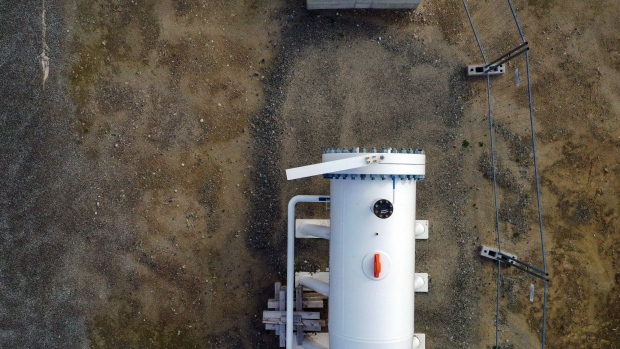Jun 16, 2021
EU’s Russia Strategy Ignores Germany’s Nord Stream 2 Issue
, Bloomberg News

(Bloomberg) -- The European Union’s eagerly awaited strategy to “push back” against Russia makes no mention of the Nord Stream 2 gas pipeline to Germany, which has been a central dilemma for the bloc for years.
The report, requested by member states ahead of a leaders’ discussion planned next week, reiterates the EU’s long standing approach to Russia but proposes little by way of potential solutions even as it recognizes that relations with Moscow continue to deteriorate.
“Russia is the EU’s largest neighbor, and remains a force to be reckoned with in Europe and globally,” the document says, setting out the many areas of tension with Moscow, from its use of chemical weapons against political opponents, to political repression at home and its many operations to destabilize EU members and their eastern neighbors.
At the same time, the strategy highlights Moscow’s growing and structural weaknesses, as well as the common challenges and interests the two sides have despite the fundamental differences.
EU’s efforts to stand up to Russia have been hampered by the German government’s determination to complete a new gas connector across the Baltic Sea. The German government has insisted that Nord Stream 2 is critical for the country’s energy supplies and is separate from the political relationship with the Kremlin. It nevertheless prompted sanctions from the U.S. and created tensions with Washington.
EU foreign policy chief Josep Borrell bristled when the pipeline issue was raised at the presentation of the report.
“Nord Stream 2 was not launched by the European Union,” he told reporters. “Nord Stream 2 is not a European Union project. It is not being funded by the European Union. It is a German project.”
Pipeline Politics
The pipeline operator began tests on the link last week ahead of U.S. President Joe Biden’s talks with Russia’s Vladimir Putin in Geneva Wednesday. The EU and the U.S. announced a mechanism for coordinating their approach to Russia when Biden was in Brussels on Tuesday.
Managing the relationship with Russia is “a key strategic challenge” for the EU, the report says, reaffirming the EU’s five guiding principles on the issue:
- implementation of the Minsk peace agreement with Ukraine
- closer ties with Russia’s former Soviet neighbors
- strengthening EU resilience to Russian threats
- selective engagement with Russia on certain issues
- support for people-to-people contacts
The report offers an overview of what the EU is doing in each of those areas.
A short concluding section, titled action points, says the EU will continue to push back against human rights violations and speak out against breaches of international law in Ukraine, Georgia, and elsewhere. It says the bloc could also consider further sanctions.
Many EU member states had asked the bloc’s external action service to include concrete proposals and options in the report, according to diplomatic memos seen by Bloomberg.
(Updates with comment from EU foreign policy chief in seventh paragraph)
©2021 Bloomberg L.P.


